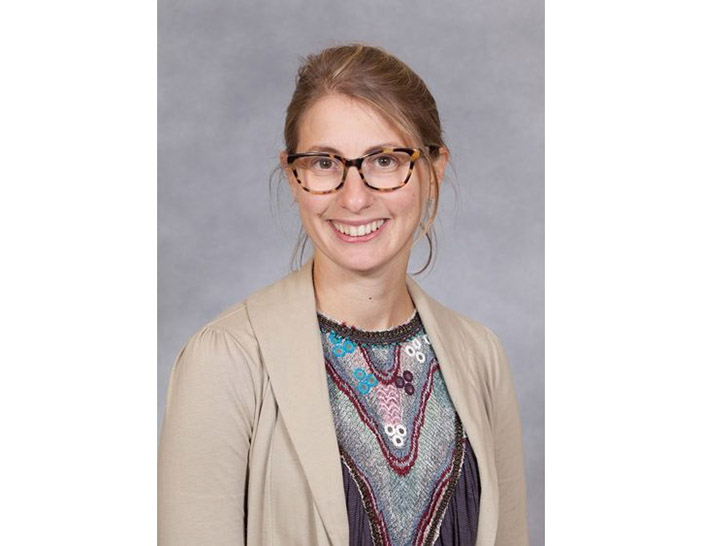
My husband and kids are huge Harry Potter fans. I know a lot of people say that, but my family brings fandom to a new level. We listen to Harry Potter on audio during car rides. My husband makes up Harry Potter trivia questions for long walks on Shabbat. For my daughter’s bat mitzvah this summer, we took a trip to England (and then Israel) to go to Harry Potter Studios. I am not nearly the fan that they are, but I come along for the ride, both literally and figuratively. It was on this recent trip to England that I was struck by a something in the novels that I think is often overlooked. Albus Dumbledore, Harry Potter’s mentor and father-figure, is the greatest and most powerful wizard in the wizarding world of Harry Potter. And with all this power, and skill, and knowledge, and wisdom, what does he do? He becomes an educator. Albus Dumbledore had many other career opportunities. If memory serves me correctly, he was even asked to become the Minister of Magic, which he turned down to stay in education.
The reality in this fantastical world struck me at my core. Across the United States, schools are facing crippling teacher shortages. While some of these shortages can be attributed to increasing student populations, the more likely cause of these shortages is shrinking numbers of college graduates going into education. According to data collected by the U.S. Census Bureau, in 1975 about one in five Americans were studying education in college; in 2015 the number was less than one in 10. Our schools are growing, but our pool of potential teachers is shrinking. Compounding the problem, teacher retention rates are abysmal. While in the world of the Hogwarts School of Witchcraft and Wizardry, the best and brightest go into teaching and stay there, this is not true in the world we live in.
I wish I could say that the yeshiva day schools are immune from this crisis. But I’d be lying. With the growth of our community, our schools are looking to hire every year. And, truthfully, the applicant pool is often fairly shallow. Schools may receive stacks of resumes, but often these resumes prove to be disappointing. I myself have looked at piles of applicants without graduate degrees or even teaching experience.
My point is not to disparage the teachers in our schools. Just the opposite. I am one of them, and I am proud to say that I am surrounded by some of the most talented and qualified educators in the country. That being said, I am concerned for our future. For many years, teaching drew the best and the brightest women because other career opportunities were closed to them. In the last few decades the professional landscape has drastically changed. For example, in 1974 less than 25 percent of students entering medical school were women. For the first time in history, in 2017, more than 50 percent of students entering medical school were women. While these opening doors for women are phenomenal for feminism, it is not as great for the field of education. In the last 40 years, the number of women going into education has shrunk from 32 percent to 11 percent. Our community can no longer rely on women to carry the burden of educating our children.
And this is where I lay the blame: on our community. Yes, I know that every Jewish mother pushing her son to become a doctor is a terrible stereotype, but is it so far off? We steer, guide or push our children into careers like medicine, or the law—or recently, engineering—but how many of us push our children into teaching? How many of us would encourage and be proud of our son or daughter if they decided to use their Ivy League degrees to go into education? We all know the answers to these questions.
I know that living with the expenses of an Orthodox lifestyle on a teacher’s salary is difficult; believe me, no one knows better than me. Let’s be honest with ourselves: On average, U.S. teachers earn 60 cents for every dollar that their professional counterparts with an equal level of education earn. Talk about a wage gap. Increasing teacher salaries is a entirely different topic for an entirely different article. My argument is that the majority of the teachers in your child’s yeshiva day school are probably Orthodox, and they manage. Why can’t that be your son or daughter? If it’s not your son or daughter, then who will be the next generation of educators? What is the alternative?
I think our community, both in the home and in the school, needs do a better job. A starting point may be discussing teacher salaries, but there are other avenues as well. Many law schools forgive loans if the graduate goes into the nonprofit world; perhaps we could use a similar program in Yeshiva University for educators. Additionally, while many yeshivas offer tuition benefits to their faculty, these numbers are shrinking. Offsetting the tuition costs for faculty could be an attractive job perk for those considering education. Providing or subsidizing daycare for faculty is another incentive that could make education a more attractive option. I am aware that all the above options come with a price tag, and these are issues that should be discussed when the community addresses day school affordability. But we can begin with something that costs the community nothing; we could do a better job acknowledging the work teachers do and giving them the respect they so obviously deserve. If we don’t, we risk never finding the next generation of Albus
Dumbledores.
By Meryl Feldblum
Meryl Feldblum has been a high school English teacher for over a decade. She is currently chair of the English department at The Frisch School and a doctoral candidate at Northeastern University.










